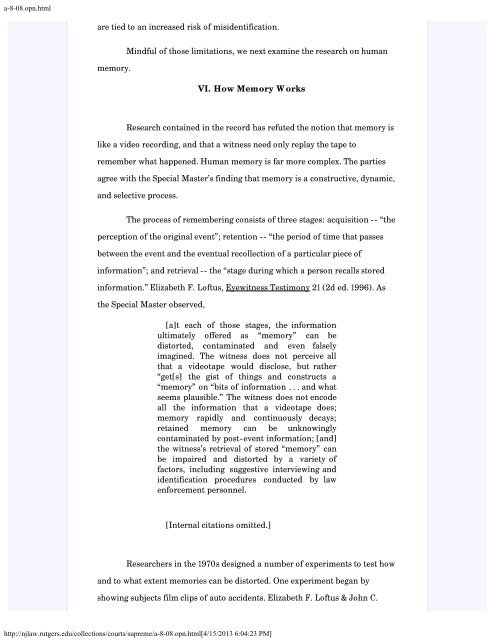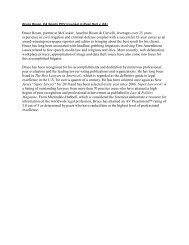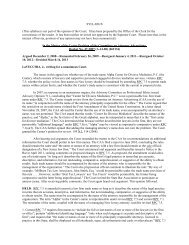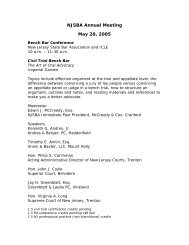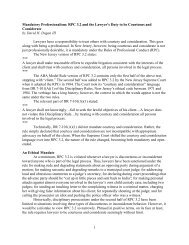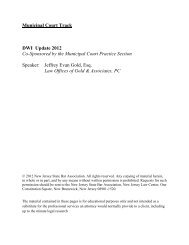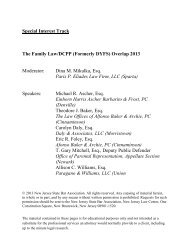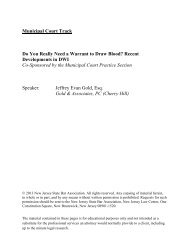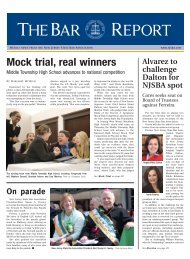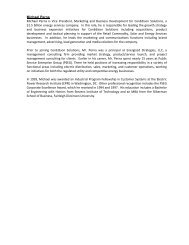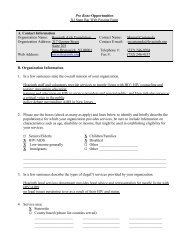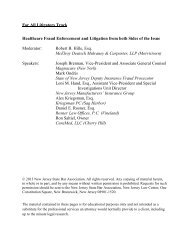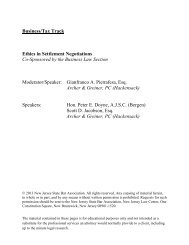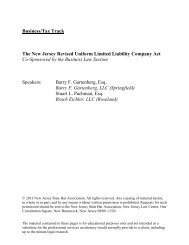State v. Henderson and the New Model Jury Charges - New Jersey ...
State v. Henderson and the New Model Jury Charges - New Jersey ...
State v. Henderson and the New Model Jury Charges - New Jersey ...
Create successful ePaper yourself
Turn your PDF publications into a flip-book with our unique Google optimized e-Paper software.
a-8-08.opn.html<br />
are tied to an increased risk of misidentification.<br />
memory.<br />
Mindful of those limitations, we next examine <strong>the</strong> research on human<br />
VI. How Memory Works<br />
Research contained in <strong>the</strong> record has refuted <strong>the</strong> notion that memory is<br />
like a video recording, <strong>and</strong> that a witness need only replay <strong>the</strong> tape to<br />
remember what happened. Human memory is far more complex. The parties<br />
agree with <strong>the</strong> Special Master’s finding that memory is a constructive, dynamic,<br />
<strong>and</strong> selective process.<br />
The process of remembering consists of three stages: acquisition -- “<strong>the</strong><br />
perception of <strong>the</strong> original event”; retention -- “<strong>the</strong> period of time that passes<br />
between <strong>the</strong> event <strong>and</strong> <strong>the</strong> eventual recollection of a particular piece of<br />
information”; <strong>and</strong> retrieval -- <strong>the</strong> “stage during which a person recalls stored<br />
information.” Elizabeth F. Loftus, Eyewitness Testimony 21 (2d ed. 1996). As<br />
<strong>the</strong> Special Master observed,<br />
[a]t each of those stages, <strong>the</strong> information<br />
ultimately offered as “memory” can be<br />
distorted, contaminated <strong>and</strong> even falsely<br />
imagined. The witness does not perceive all<br />
that a videotape would disclose, but ra<strong>the</strong>r<br />
“get[s] <strong>the</strong> gist of things <strong>and</strong> constructs a<br />
“memory” on “bits of information . . . <strong>and</strong> what<br />
seems plausible.” The witness does not encode<br />
all <strong>the</strong> information that a videotape does;<br />
memory rapidly <strong>and</strong> continuously decays;<br />
retained memory can be unknowingly<br />
contaminated by post-event information; [<strong>and</strong>]<br />
<strong>the</strong> witness’s retrieval of stored “memory” can<br />
be impaired <strong>and</strong> distorted by a variety of<br />
factors, including suggestive interviewing <strong>and</strong><br />
identification procedures conducted by law<br />
enforcement personnel.<br />
[Internal citations omitted.]<br />
Researchers in <strong>the</strong> 1970s designed a number of experiments to test how<br />
<strong>and</strong> to what extent memories can be distorted. One experiment began by<br />
showing subjects film clips of auto accidents. Elizabeth F. Loftus & John C.<br />
http://njlaw.rutgers.edu/collections/courts/supreme/a-8-08.opn.html[4/15/2013 6:04:23 PM]


